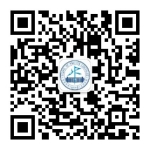Tenets
The Southeast University Institute for Translation and Cross-Cultural Studies was officially established in September 2024. Based on Chinese culture, the institute places equal emphasis on both translation practice and research, aiming to propagate outstanding culture, facilitate cultural exchanges between China and other nations, enrich intellectual achievements, expand the realm of mind, and drive innovation in thought. It endeavors to build a discourse system with Chinese characteristics, advance the development of foreign language disciplines and education, and serve national security and sustainable development.
Roles
Leveraging its unique disciplinary strengths and responding to the Belt and Road Initiative, the institute engages in academic research on cutting-edge and pressing issues related to language, culture, and society from a cross-cultural perspective. It is also dedicated to nurturing talents in translation and intercultural studies, and fostering exchanges in the fields of translation studies and cultural research both domestically and internationally.
Research Directions
The institute reinforces deep integration of translation with literature, linguistics, and cultural studies, and strengthens interdisciplinary development with fields including communication studies, regional studies, and history, to establish an academic platform that integrates contemporary developments and digital technologies into academic research, and bridges meta-theoretical exploration with the construction of local academic discourses. Specifically, prompted by history and culture and yet keeping abreast of the times, this platform aims to combine practical implications and theoretical rigor with academic depth. By integrating theories and methodologies from translation studies, communication studies, regional studies, intercultural communication studies, and history, the institute is wedded to the following research fields.
Studies on Translation and Communication: This includes translation theories, history of cultural translation, translation of classics and academic works, digital intelligence and cognitive translation, and international communication, etc.
Studies on Culture and Cross-Cultural Exchange: This includes studies on cultural trends and criticism, history of cross-cultural communication, cultural strategy and education, intercultural communication, and comparative culture and cultural communication, etc.
Studies on Translingual Writing and Rhetoric: This includes rhetorical strategies in intercultural communication, argumentation models, and application of logic and argumentation theories in cross-cultural contexts, etc.
Major Publications
1. Gao, Shengbing. A Probe into the Background of Translation Thoughts, Suzhou: Suzhou University Press, 2017.
2. Gao, Shengbing. On the Translation of Logic into Chinese—A Cross-cultural Approach, Shanghai: Shanghai Translation Press, 2008.
3. Gao, Shengbing, et al. Epistemology in the Construction of Genetic Studies: A Perspective of Translation Thoughts, Shanghai Journal of Translators, No. 1,2021.
4. Gao, Shengbing, et al. A Psychological Approach to Genetic Studies of Translation Thoughts, Shanghai Journal of Translators, No. 6, 2023.
5. Liu, Donghong. Abstract Entity Anaphora in Argumentative Texts: Pragmatic features and referent interpretation,Springer, 2023.
6. Liu, Donghong,et al. Illuminating Comparative Rhetoric: Motivations,Core Ideas and Research Methods. Contemporary Rhetoric, No. 6, 2023.
7. Liu, Donghong. Pragma-dialectical perspective to intercultural discussion as communicative activity. Humanities and Social Sciences Communications, No. 10, 2023.
8. Liu, Donghong,et al. Keeping balance between loyalty and modification: a Toulminian model as analytical framework. Humanities and Social Sciences Communications, No. 11, 2024.
9. Ma, Xingcheng, et al. Language interference in English-Chinese simultaneous interpreting with and without text. Babel, No. 3, 2020.
10. Ma, Xingcheng, et al. Exploring the impact of word order asymmetry on cognitive load during Chinese–English sight translation. Target, No. 1, 2021.
11. Ma, Xingcheng, et al. A cognitive investigation of “chunking” and “reordering” for coping with word-order asymmetry in English-to-Chinese sight translation: Evidence from an eye-tracking study. Interpreting, No. 1, 2021.
12. Ma, Xingcheng, et al.,Coping with syntactic complexity in English–Chinese sight translation by translation and interpreting students. An eye-tracking investigation. Across Languages and Cultures, No. 2, 2021.
13. Ma, Xingcheng, et al. An eye-tracking based investigation into reading behavior during Chinese-English sight translation: The effect of word order asymmetry. Translation & Interpreting, No. 1, 2022.
14. Ma, Xingcheng, et al. A cognitive inquiry into similarities and differences between translation and paraphrase: Evidence from eye movement data. PloS one, No. 8, 2022.
15. Wang, Tianyu. The Dilemma and Way Out of African Feminist Writing—A Discussion Based on Une Si longue letter. New Perspectives on world literature, No. 5, 2022.
16. Wang, Tianyu (Tran.). La Condition ouvrière. Shanghai: Shanghai People's Publishing House, 2023.
17. Wang, Tianyu. The Overseas Reincarnation of Traditional Culture: A Case Study of French Translation of Traditional Chinese Medicine Classics. Chinese Translators Journal, No. 1, 2024.
18. Wang, Tianyu. À la recherche du style original de Lao She : étude sur ses œuvres romanesques.éditions l’Harmattan,2024.
Persons in Charge:GAO Shengbing, MA Xingcheng



